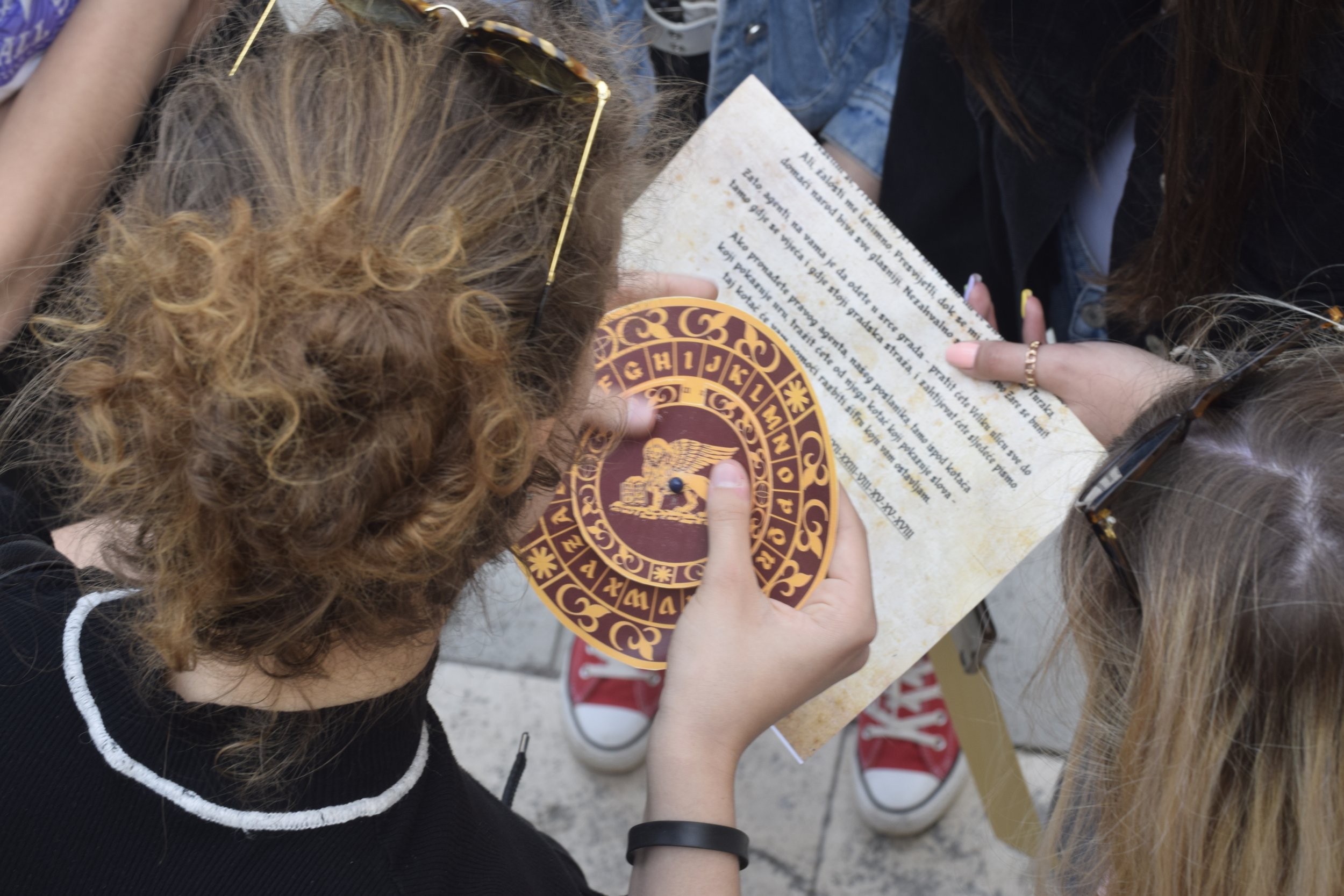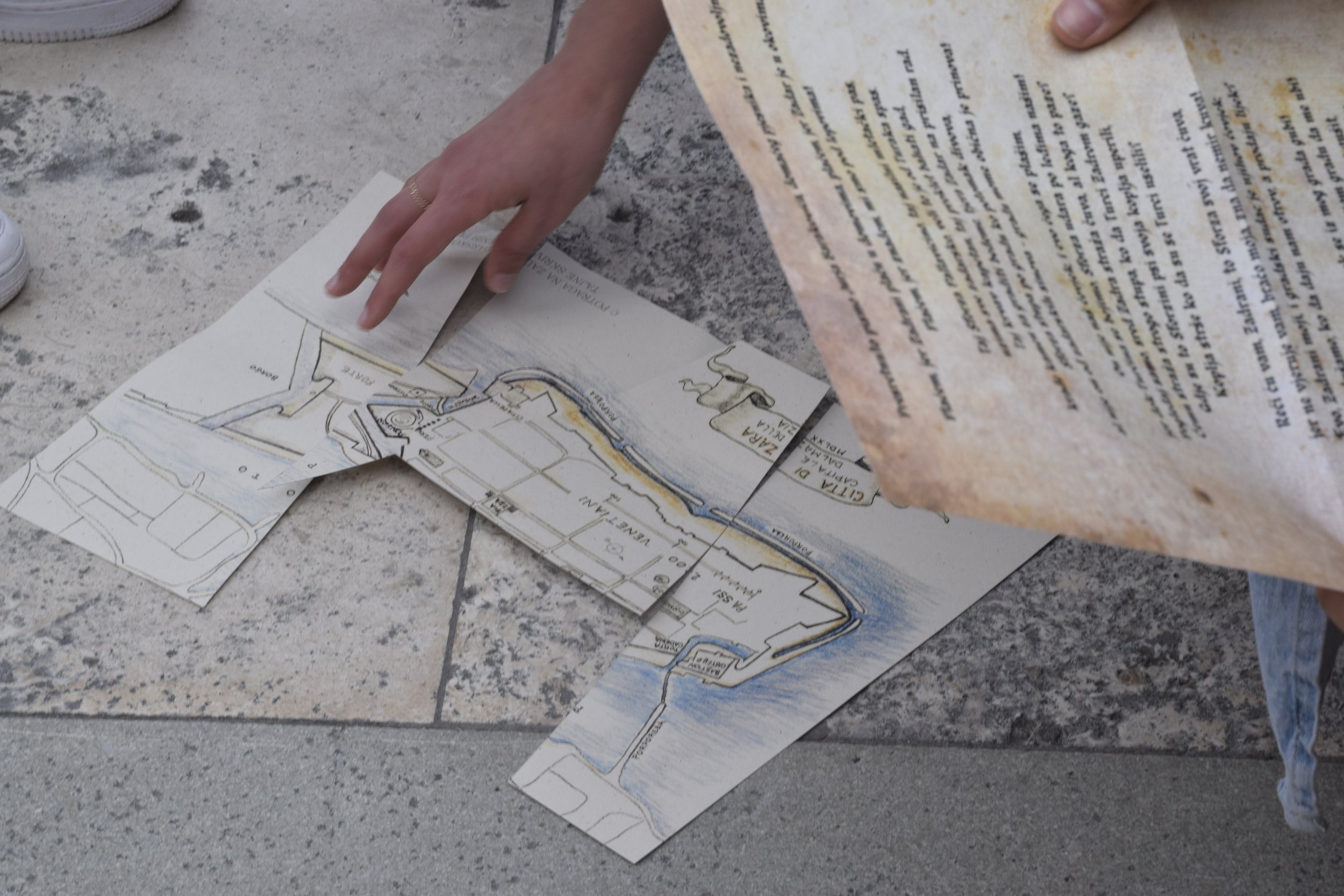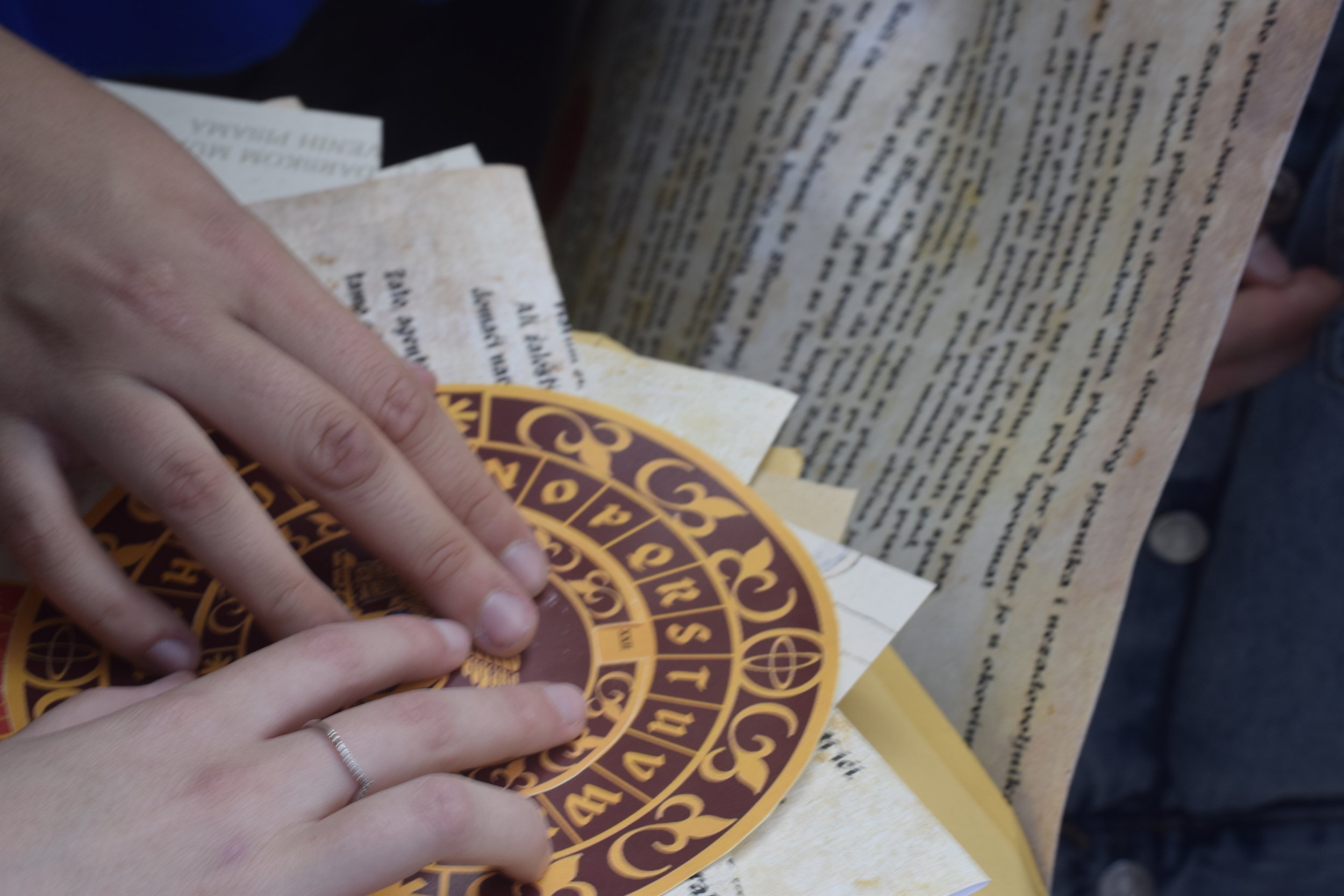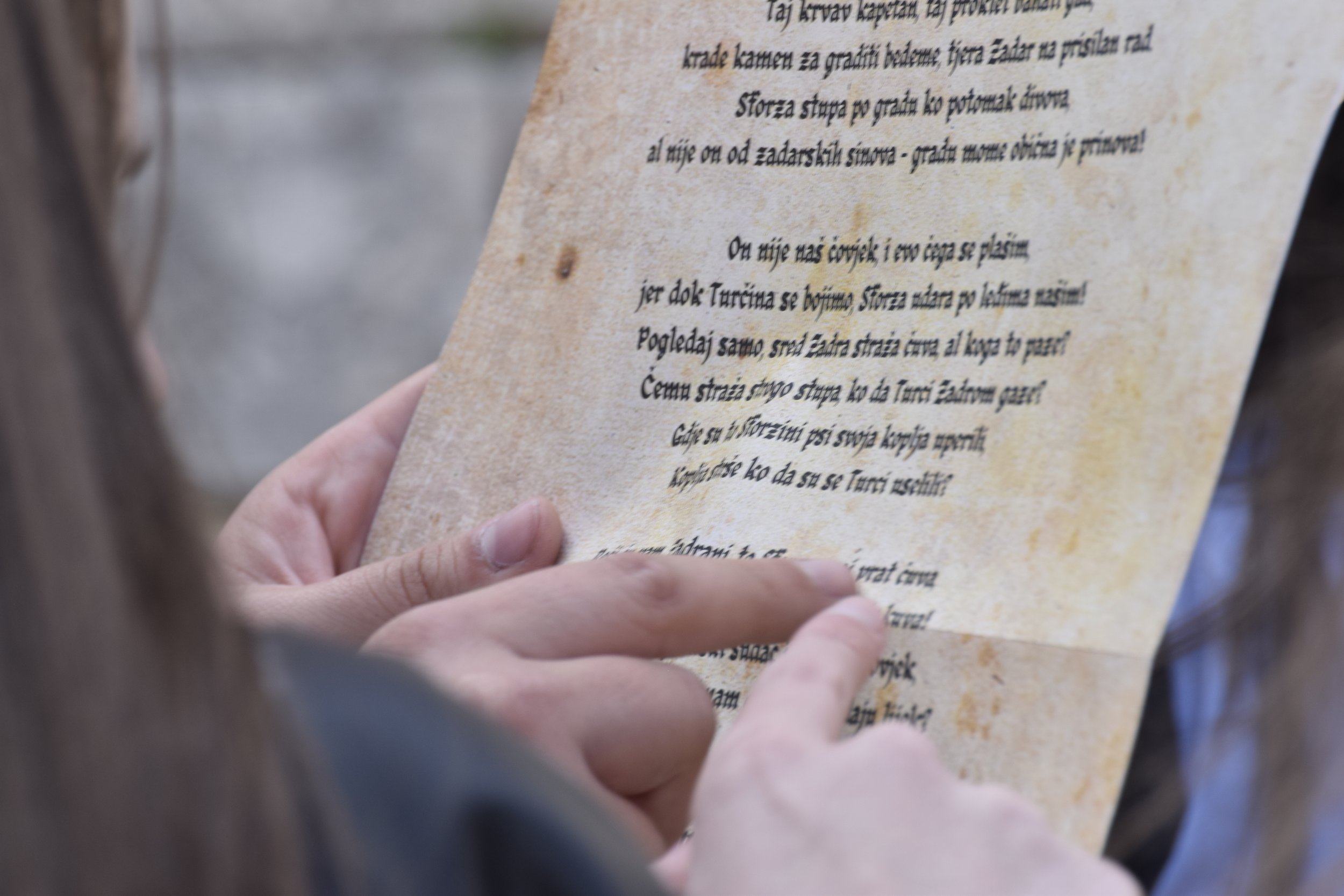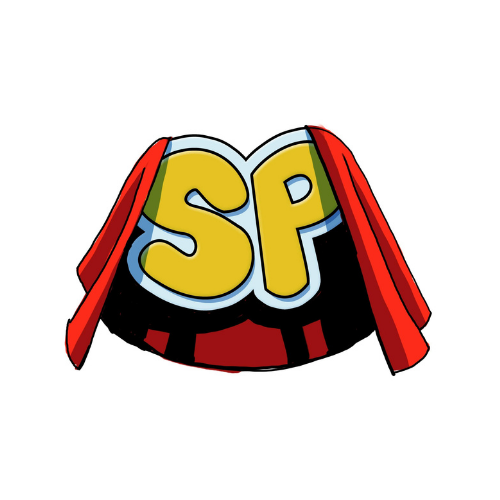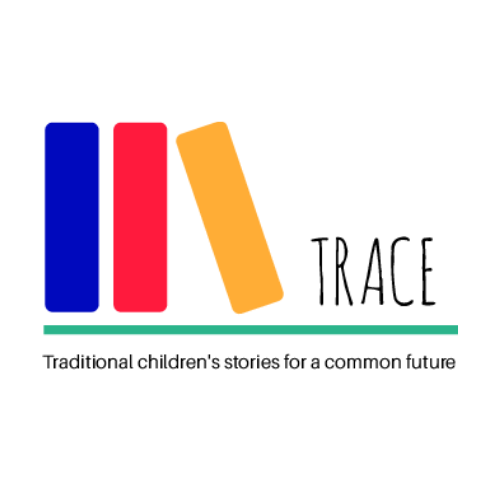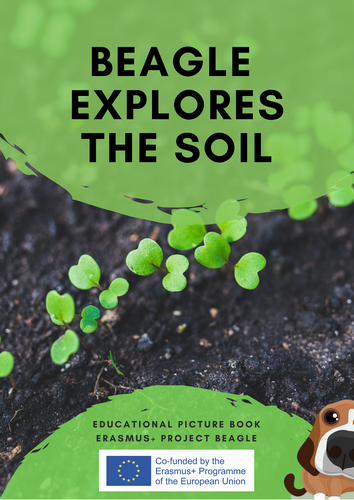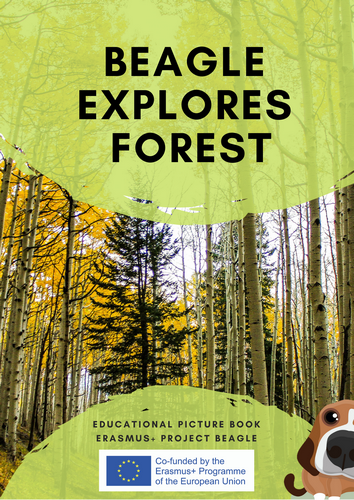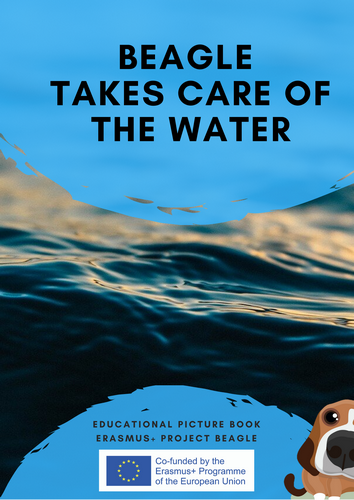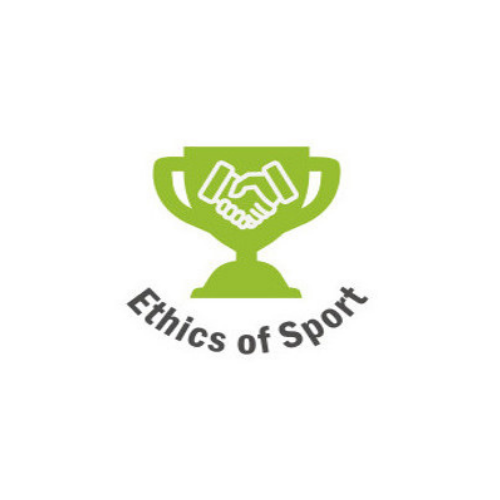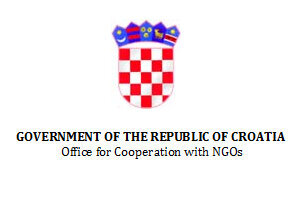PLATO’S EU – PHILOSOPHICAL LEARNING APPLIED TO ONLINE SURROUNDINGS IN EU
(FILOZOFSKO UČENJE PRIMIJENJENO NA ONLINE OKRUŽENJA UNUTAR EU)
Trajanje: 01/11/2021 – 01/11/2023
Philosophical Learning Applied To Online Surroundings in EU - PLATO'S EU projekt je čiji je cilj odgovoriti potrebama Europske Unije za inkluzivnijim društvom, društvom koje je sačinjeno od građana koji imaju aktivnu ulogu u demokratskom životu, te na hitnu potrebu za prilagodbom na nove i neočekivane načine života uzrokovane pandemijom COVID-19. Cilj projekta je pomoći otvaranju društva razvojem i korištenjem inovativnih praksi i tehnologija kroz stvaranje različitih obrazovnih resursa. Akronim projekta, PLATO’S EU, nosi iza sebe ideju da je EU izgrađena na filozofskom, kulturnom i društvenom naslijeđu s kontinuiranom tradicijom koja se proteže sve do antičke Grčke. Ideja projekta je iskoristiti filozofsko nasljeđe i prilagoditi ga suvremenom kontekstu - vratiti se korijenima demokracije (i posljedično korijenima EU) kako bi se revidirala osnova deliberativnih procesa. Ovdje je važno naglasiti da je svrha filozofije učiti ljude kako misliti, a ne što misliti. Slično, kao što je izazov filozofije učiti 'kako', a ne 'što' misliti, izazovi digitalnog doba mogu se više usmjeriti prema tome 'kako' pravilno koristiti resurse, a ne 'koje' resurse koristiti. Stoga, PLATO'S EU obostrano kombinira filozofsko naslijeđe sa suvremenim potrebama – korištenje digitalnih resursa za podučavanje filozofije, te korištenje filozofije za suočavanje s izazovima digitalne ere.
NOSITELJ PROJEKTA:
Projektni partneri:
Udruga “Mala filozofija” (Hrvatska)
ciljevi projekta:
Ponuditi nove metode učenja i poučavanja
Ojačati kritičko mišljenje i deliberativni dijalog u obrazovanju
Razviti digitalnu spremnost
Poboljšati digitalne vještine i kompetencije
Promicati medijsku pismenost
Ojačati profesionalne kapacitete učitelja i odgajatelja
Poticati građanski angažman i promicati aktivno građanstvo
Ublažiti izvanredne okolnosti koje utječu na školsko okruženje
GLAVNE AKTIVNOSTI:
Izrada otvorene obrazovne platforme sa komponentama prilagođenim osobama s invaliditetom
Razvoj i implementacija otvorenih obrazovnih resursa za poticanje razvoja kritičkog mišljenja i drugih filozofskih praksi u digitalnom okruženju
Razvoj i implementacija otvorenih obrazovnih resursa o korištenju digitalnog okruženja za poučavanje praktične filozofije
Izrada i objava digitalnog priručnika za nastavnike
Izrada i objava udžbenika za širu javnost – “Philosophical Cookbook”
KORISNICI PROJEKTA:
Nastavnici u srednjim školama
Učenici od 14 do 18 godina
Sveučilišta, muzeji, knjižnice, nevladine organizacije i stručnjaci za formalno i neformalno obrazovanje
Šira javnost
UKUPNA VRIJEDNOST PROJEKTA:
146.300,00 € (financiran kroz program Erasmus+ K2, EU slovačke agencije za mobilnost)
KONTAKT:
Antonio Kovačević (antonio.kovacevic@live.com)
Bruno Ćurko (mala.filozofija@gmail.com)




